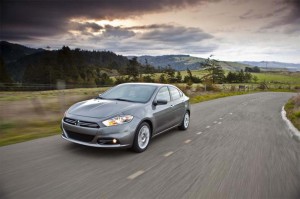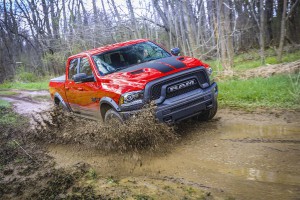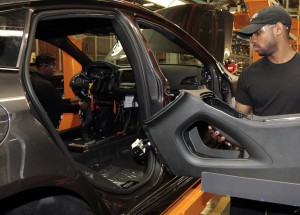“Imported from Detroit” no more. Today marks the end of production for the Chrysler 200, a sedan seen only a few years ago as critical to the revival of the once-bankrupt automaker.
But like the Dodge Dart sedan that was pulled from production in September, Chrysler’s four-door has fallen victim to shifting market trends. Sedans, especially midsize ones, have taken a beating as motorists by the millions switch to sport- and crossover-utility vehicles. Light trucks, in general, now account for more than 60% of U.S. new vehicle sales.
The precise time when the last Chrysler 200 will roll down the assembly line at the Fiat Chrysler Automobiles plant in Sterling Heights, Michigan, isn’t clear. The 1,700 hourly employees are scheduled to work the line until around 3 p.m., “but it’s all a matter of parts,” noted spokesperson Jodi Tinson. When they run out, workers will be sent home.
And they’ll remain on temporary layoff for more than a year, though they at least have a future on the line to look forward to. FCA will spend most of 2017 retooling the suburban Detroit factory to build the next generation of the full-size Ram 1500 pickup truck. Though a formal launch date hasn’t been announced, FCA Chief Executive Sergio Marchionne previously said the target date is early 2018.
And when the plant comes back online, FCA will not only bring back those 1,700 hourly workers – and another 1,846 supervisors and salaried staff – but begin to phase in another 700 jobs on the line as truck production ramps up. Since the automaker is expected to eventually bring back an additional shift, state records indicate employment could ultimately approach 5,000.
The automaker will also upgrade the plant by adding a state-of-the-art paint shop and a new test track. The entire project is expected to cost $1.48 billion.

Fiat Chrysler killed the Dodge Dart earlier this year as part of its realignment of its product portfolio.
While the long-term job prospects may be upbeat, the end of production of the Chrysler 200 and the Dodge Dart have raised questions about FCA, in particular, and the auto industry overall.
(Marchionne pushing for FCA manufacturing revival. For more, Click Here.)
The 200 originally appeared in late 2010, essentially as a mid-cycle makeover of the old Chrysler Sebring. It received one of the most widely tracked launches of any new model in recent history, thanks to an unusual, 90-second commercial that featured rapper Eminem and which appeared during the broadcast of the Super Bowl in February 2011.
Initial sales were strong, helping revive the Detroit-based maker as it completed its merger with Italy’s Fiat SpA. And hopes were high that momentum would build with the 2014 launch of a completely remade version of the sedan. But reviews were mixed and the new version of the Chrysler 200 came to market just as the shift from cars to trucks kicked into high gear.
For the first 11 months of this year, sales of the Chrysler 200 fell by 65%, to 54,651. The decline accelerated in November, U.S. dealers moving only 2,849 of the sedans, a 72% drop from the year before.
The numbers haven’t been much better for the Dodge Dart, which was launched in 2012 to similar optimism. Sales are off 49% for the year-to-date and, with inventories dwindling, the November dip was 69%.
The closure at Sterling Heights means more than just the end of a once-popular product line. It represents a major shift in strategy for FCA, CEO Marchionne ruling that the company will no longer build midsize and smaller cars in the United States.

The appeal of full-size trucks combined with low gas prices are the catalysts for growing pickup sales and FCA's move to increase production at a new plant.
(Click Here for details about the $1.48 billion plan for FCA’s plant in Sterling Heights, Michigan.)
In fact, the company has all but walked away from passenger cars entirely. As a result of its recently inked contract with Canadian union workers, FCA will continue to build several larger models, the Chrysler 300 and Dodge Charger sedans, as well as the two-door Dodge Challenger, in Ontario.
It will also continue importing a handful of lower-volume specialty models from abroad, including the new Alfa Romeo Giulia sedan and the Fiat 500 hatchback.
But even those Italian brands are shifting direction. At the Los Angeles Auto Show earlier this month, Alfa introduced its first-ever SUV, brand boss Reid Bigland telling TheDetroitBureau.com the new Alfa Romeo Stelvio is expected to become the marque’s best seller. Fiat, meanwhile, is selling both a microvan and a new crossover-utility.
As for the rest of FCA’s U.S. production network, it is now firmly focused on producing various forms of utility vehicles and pickups. Even in, Canada, the primary product is the newly redesigned Chrysler Pacifica Hybrid minivan.
Of course, FCA isn’t the only automaker changing course to respond to market shifts. Domestic rivals Ford and General Motors are rejigging their production schedules and Ford is moving assembly of slower selling small passenger car models to Mexico to open up factory space for new pickups and utes.
(FCA expects Wagoneer to stand apart … literally. Click Here for the story.)
Even industry giant Toyota has also been cutting back production of some passenger lines and boosting light truck output. The market shift “is going to continue to accelerate in the future,” Bob Carter, head of U.S. Automotive Operations for Toyota, said Wednesday during an appearance in Detroit.


The chickens are going to come home to roost with a vengeance the next time oil prices spike due to instability in mid east. “Gee”, the auto industry will say, “who could have predicted demand for giant gas hog trucks would evaporate and we’d be stuck unable to meet demand for fuel efficient cars? Guess it’s time for a bailout.”
I DONT CARE WHERE THEY MOVE THERE PRODUCTION BUT IF THEY MOVE IT OUT OF THIS COUNTRY THEY CAN NOT BRING IT BACK INTO THE USA WITH OUT PAYING A IMPORT TAX EQUIVALINT TO THE LOST WAGES AND BENIFIT PAYED IN THIS COUNTRY
Curious what cars you have driven over the last 20 years, Ray…